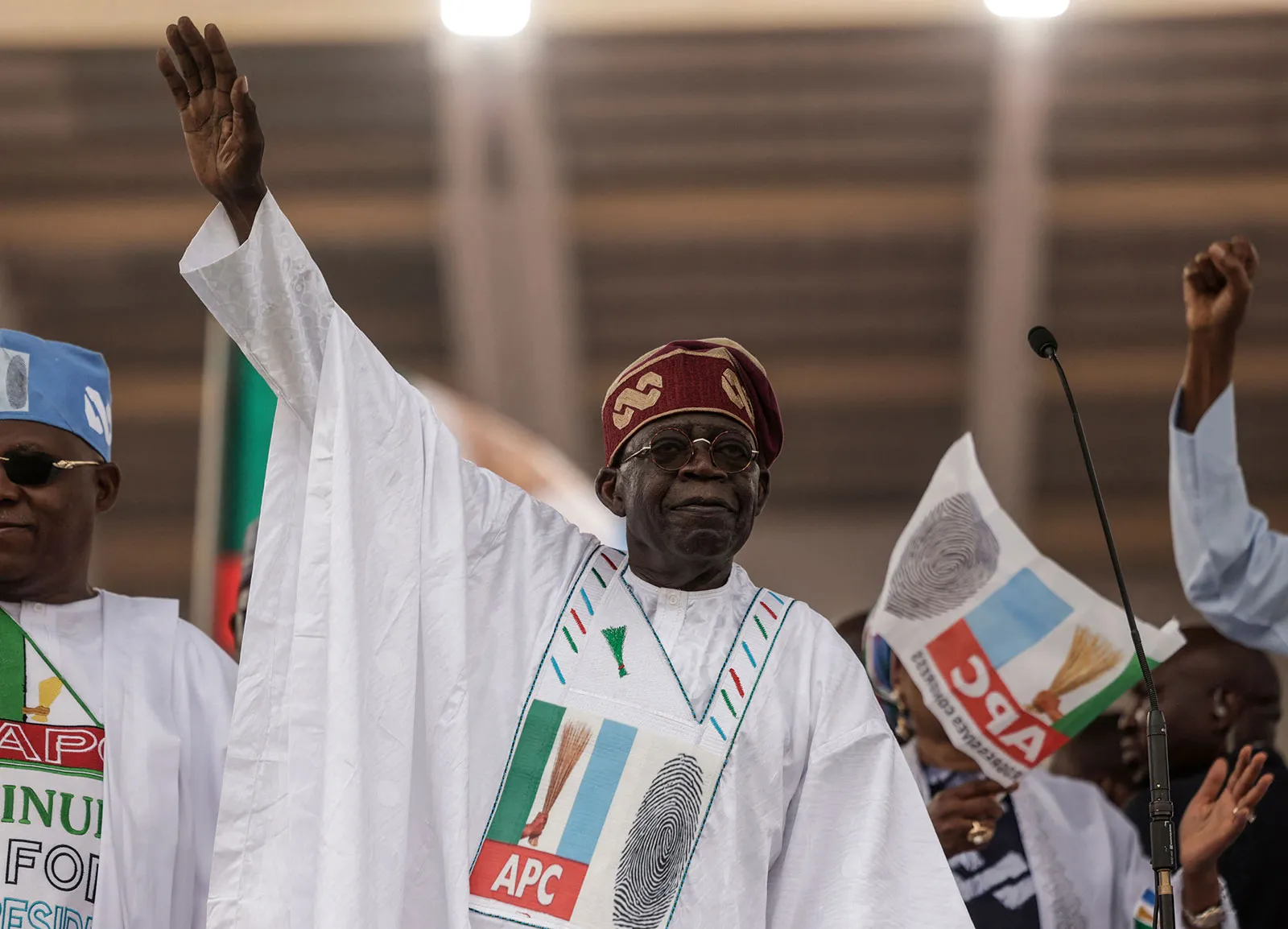As President Bola Tinubu assumes office in Nigeria, the challenges awaiting him are monumental. Despite bold initial reforms, the country’s economic woes persist, making it a tough sell for international investors.
In his inaugural address on May 29th in Abuja’s Eagle Square, Tinubu confronted a stark reality: inflation at 22%, the highest in 18 years, crippled public finances, low oil production, and persistent militancy. Differentiating himself from his predecessor, Muhammadu Buhari, Tinubu embarked on a path of economic transformation.
Immediate removal of fuel subsidies, simplifying the exchange rate system, and dismissing high-profile officials marked Tinubu’s early actions. The changes have stirred optimism among influential voices like Danladi Verheijen, co-founder of Verod Capital, who sees a “massive step change” in policymaking under the new administration.
However, challenges abound. Nigeria’s economic model, reliant on oil exports and heavy imports, needs a fundamental shift. Tinubu’s vision involves reducing imports, promoting local production, and exporting value-added products. Initiatives like the Lagos Free Zone aim to create a manufacturing hub, attracting global players like Kellogg’s and Colgate-Palmolive.
Infrastructure hurdles, such as inadequate road connectivity, pose obstacles to the success of these economic zones. Efforts are underway to upgrade roads and introduce a freight rail line, but the urgency of completion is evident.
The naira’s depreciation against the dollar is expected to boost domestic manufacturing, but the short-term impact has seen some major brands scaling back operations due to increased costs.
Tinubu’s removal of fuel subsidies, although deemed necessary, has led to significant hardships for millions, with petrol prices surging overnight. Inflation reached 28% in November, impacting basic services and prompting a healthcare professional “brain drain.”
The question arises: Has Tinubu attempted too much, too quickly? The administration’s push for reforms, including subsidy removal and exchange rate adjustments, has faced backlash. Critics argue that the government’s indecision, illustrated by repeated postponement of monetary policy committee meetings, adds to uncertainty.
Nigeria’s potential is undeniable, with a burgeoning tech sector and a youthful population. However, realizing this potential requires tangible execution of plans and addressing economic fundamentals.
Tinubu’s international outreach aims to attract foreign investment, yet success hinges on the government’s ability to create a conducive business environment. As investment advisor Olugbolahan Mark-George aptly notes, “We’re not short of policies and documents – it’s execution that’s the critical thing.”
The road ahead for President Tinubu remains challenging, and the success of his economic reforms will determine Nigeria’s trajectory in the global economic landscape.

